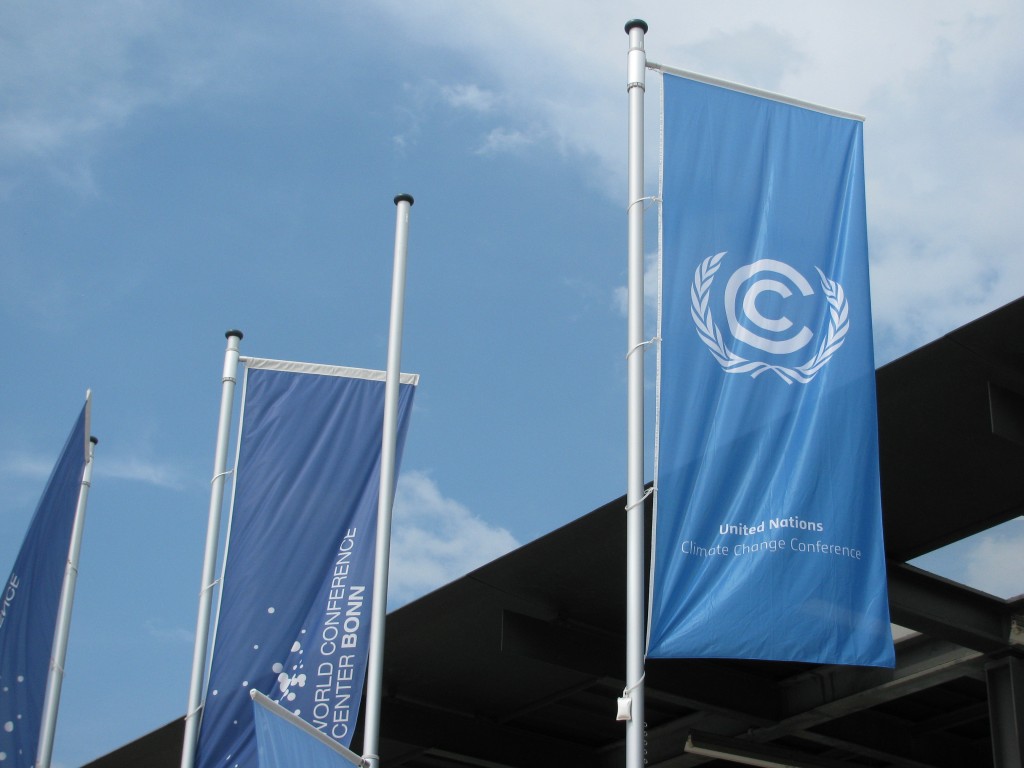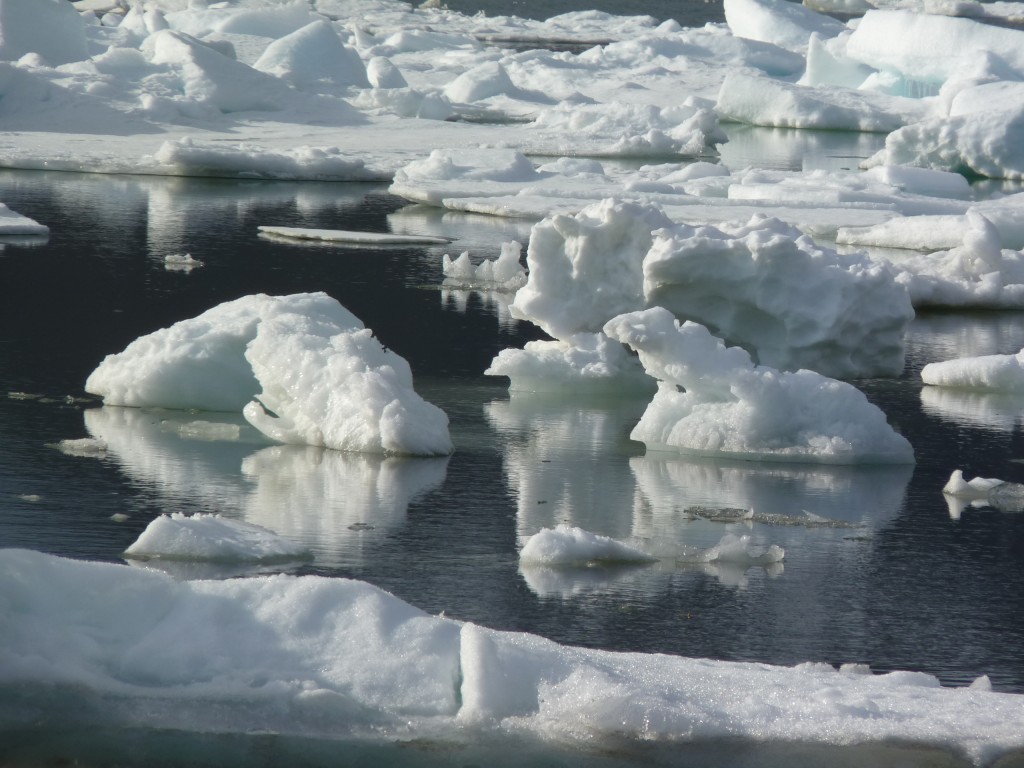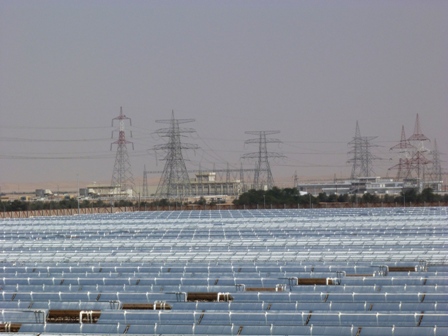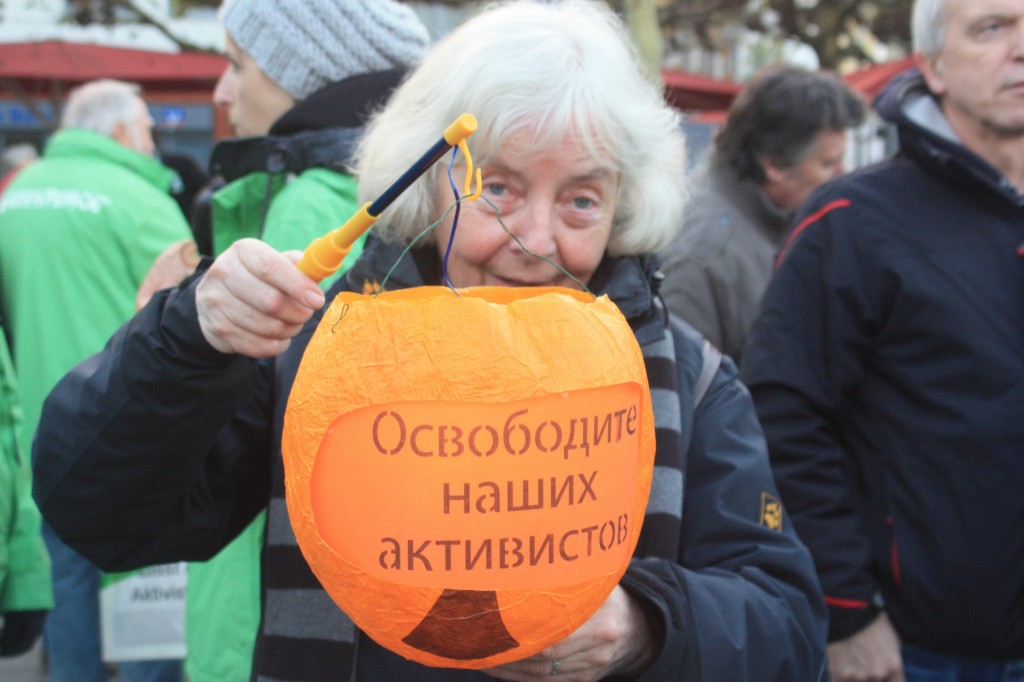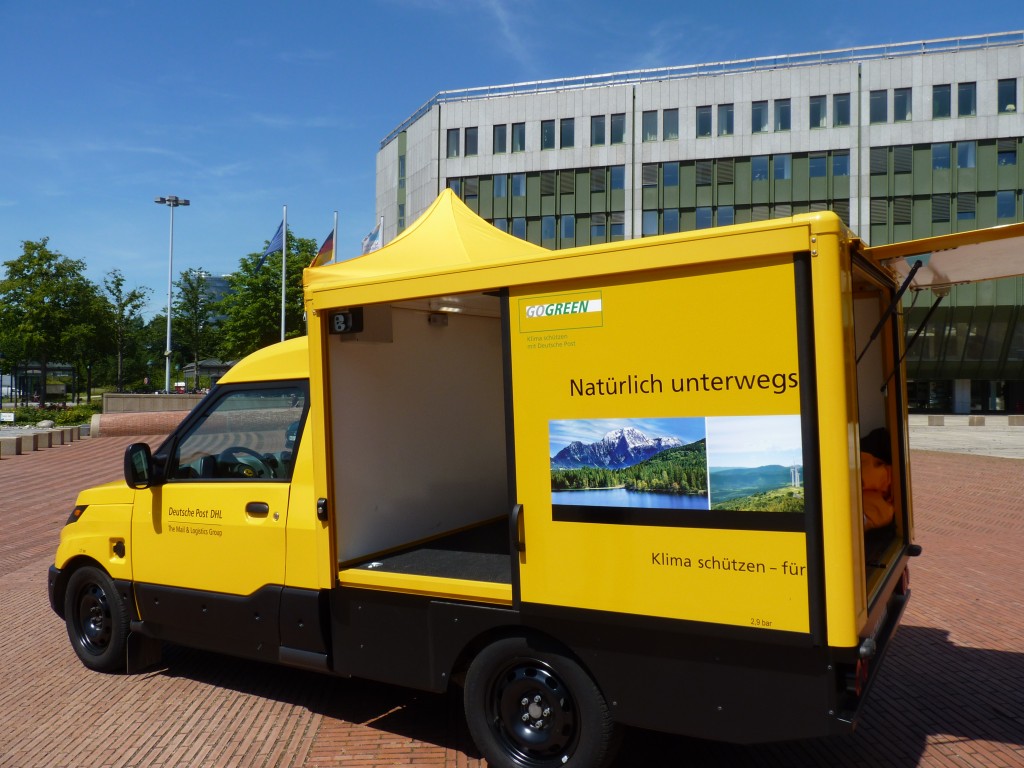Hot, hot, hotter.. can UN talks in Bonn make a difference?
After all the hype surrounding the Paris Climate Agreement in December, there is a real danger of anti-climax, of feeling self-satisfied, of sitting back saying, “Yes, we did”, while the planet continues to break all temperature records and fossil fuel emissions continue to rise.
The first four months of this year were the hottest ever recorded. Even the “ice island” of Greenland has seen temperatures spiking in April, typically a cold month. NOAA says 2016 could be off to a similar start to 2012, when the surface of the ice sheet started melting early and then experienced the most extensive melting since the start of the satellite record in 1978. We have had several reports of islands being submerged by rising seas and devastating forest fires in Canada and now Russia, which experts say will be more common as the planet warms.
Close to my office here in Bonn, Germany’s UN city, the first official working meeting of all the parties to the Paris Agreement started on Monday, going on until next Friday. I have been there, on and off, talking to people, listening in, trying to get a sense of what is happening – or not, as the case may be.
But the atmosphere in Bonn’s new World Conference Centre is definitely low-key compared with the hype surrounding the Paris Climate Conference. Yet the world climate agreement will be worthless if the countries of the world do not succeed in transmitting it into actions in the very near future.
Time to deliver
The President of the Paris COP21, French Environmenent Minister Segolene Royal, and the incoming President of COP22, which will be held in Marrakech, Morocco’s Foreign Minister Salaheddine Mezouar, have made it clear that it is time to shift the focus from negotiation to implementation and rapid action.
The challenge ahead, they say, is to “operationalize the Paris Agreement: to turn intended nationally determined contributions into public policies and investment plans for mitigation and adaptation and to deliver on our promises.”
Indeed. There is no lack of evidence to support the urgent need for faster action on climate change. An increasing number of extreme weather events are being attributed to climate change. The CO2 concentration in the atmosphere is climbing steadily and is likely to cross the critical 400 ppm mark permanently in the not-too-distant future. The global temperature is already one degree Celsius higher than it was at the onset of industrialization. That means very rapid action is needed to keep it to the agreed target of limiting warming to two degrees and preferably keeping it below 1.5 degrees.
Three degrees and more?
The Paris Agreement was hailed widely as a breakthrough, with all parties finally accepting the need to combat climate change by reducing emissions of greenhouse gases. Countries have put pledges on the table, outlining their emissions reduction targets. But so far, the reductions pledged would still take the world closer to a three-degree rise in temperature.
At the Bonn meeting, the International Energy Agency (IEA), issued a warning that governments can only reach their climate goals if they drastically accelerate climate action and make full use of existing technologies and policies.
“The ambition to peak greenhouse gas emissions very soon is anchored in the Paris agreement, but we don’t see the actions right now to make this happen”, said Takashi Hattori, Head of the IEA’s Environment and Climate Change Unit. “At the same time, there are ‘GDP-neutral’ ways and means to get emissions to peak and then fall whilst maintaining economic growth, and that’s what we need to focus on.”
GDP-neutral means that a technology or policy does not negatively impact the economic growth of a country, and can actually contribute to the growth of that country.
In Bonn, Hattori presented what the IEA calls a “bridge scenario” involving the use of five technologies and policies which it says can bridge the gap between what has been pledged by governments so far and what is required to keep the global average temperature to as low as 1.5 degrees Celsius as part of what the agency terms a “well below 2 degrees world”
The five key measures which the IEA say could achieve a peak in emissions around 2020 are energy efficiency, reducing inefficient coal, renewables investment, methane reductions and fossil-fuel subsidy reform. That sounds to me like a very sensible – and practicable set of measures. But that doesn’t mean it will be easy.
Takashi Hattori stressed that “one size does not fit all” when it comes to climate and energy policies. Different measures will be required in different parts of the world. In the Middle East, for example, the greatest potential to reduce emissions is through reducing fossil fuel subsidies, he argued, while energy efficiency would have the greatest potential in Europe and China. He recommended the “massive deployment of renewables” in India and Latin America.
Other solutions outlined include smart grids, hydrogen as fuel that can be generated with renewable sources of energy, and “smart” agriculture.
The IEA says governments should make the energy transition not only because of rising temperatures, but because of other benefits, such as a reduction of air pollution. That makes sense. People in congested cities are more worried about pollution damaging their health than about climate change, the experts say.
I am reminded of an interview I conducted recently with Chinese expert Lina Li, when she told me she thought China’s air pollution problem would speed up the country’s ratification and implementation of the Paris Agreement.

Lina Li from the Adelphi think-tank told me pollution concerns could speed up China’s climate action (Pic. I.Quaile)
The cost argument
Although many scientists are alarmed at the slow pace of emissions reductions, IPCC chief scientist Hoesung Lee told the Guardian in an interview it was still possible to keep to the two-degree target. The current UN climate chief Christina Figueres, who will hand over to Mexican Patricia Espinosa later this year, has said emissions would have to peak by 2020 if that limit is to be kept to. But Lee is keen to keep the options open, saying it would still be possible to keep to the limits if emissions peaked later. But he warned the costs could be “phenomenal”. He believes expensive and controversial geoengineering methods may be necessary to withdraw CO2 from the atmosphere and store it.
A report published this week by UNEP says the cost for assisting developing countries to adapt to climate change could reach up to 500 billion dollars annually by 2050. This is five times higher than previous estimates, the report says.
UNEP urged countries to channel more funds towards adaptation, saying the costs would rise “sharply”, even if countries succeed in limiting global temperature increase to two degrees Celsius.
I asked Mattias Söderberg, Co-Chair of the Climate change advisory group with the climate justice ACT alliance, how he felt about the progress of climate action and the role of the current Bonn meeting. He said the UNEP report, along with the alarming news about islands disappearing under rising seas in the Pacific, highlighted the urgent need for action. “Climate change is not a matter of tomorrow, but a crisis we need to deal with today.”
Time to ratify!
So far, 177 parties have signed the Agreement. But only 16 parties have ratified the treaty. It must be ratified by 55 parties representing 55 percent of total global emissions to enter into force. Söderberg called on wealthy, industrialized countries to move ahead with ratification:
“I am happy to see many of the poor and vulnerable countries moving fast with their ratification, and I hope other countries will follow soon. I am worried about the EU, which seems to be delayed”. Söderberg says the EU, could find itself on the sidelines, overtaken by others.
But the increasing concern over refugees and migration here in Europe could make a lot of countries look more closely at climate change, which is likely to increase the number of people having to leave their homes and look for a better life elsewhere.
“Go, world, go!”
NGO representatives stress that the Bonn talks can only help kick off the series of measures necessary to halt global climate change. Greenpeace climate policy chief Martin Kaiser told me the main work had to be done in the countries themselves, which have to work out their timetables to reach the goals agreed in Paris. That means an early transition to a fossil-free future. Kaiser called on host country Germany in particular, often cited as a model for its shift to renewable energy, to come up with a binding exit strategy for coal by 2030.
“Without an exit from coal, Germany’s signature under the Paris Agreement is worthless”, he told me.
The world’s top emitters, the USA and China, will also have to take major steps to halt climate warming. The delegates meeting in Bonn until May 26 have their work cut out for them. I have always been skeptical about the mass jubilation over the Paris Agreement. Yes, we needed it. But the proof of every pudding is in the eating. All the indications are that 2016 will be the hottest year on record, and probably by the largest margin ever. If the Paris document is to be more than a lot of pieces of paper, we will have to see things happening very soon – and definitely not just in the conference rooms of Bonn and elsewhere.



